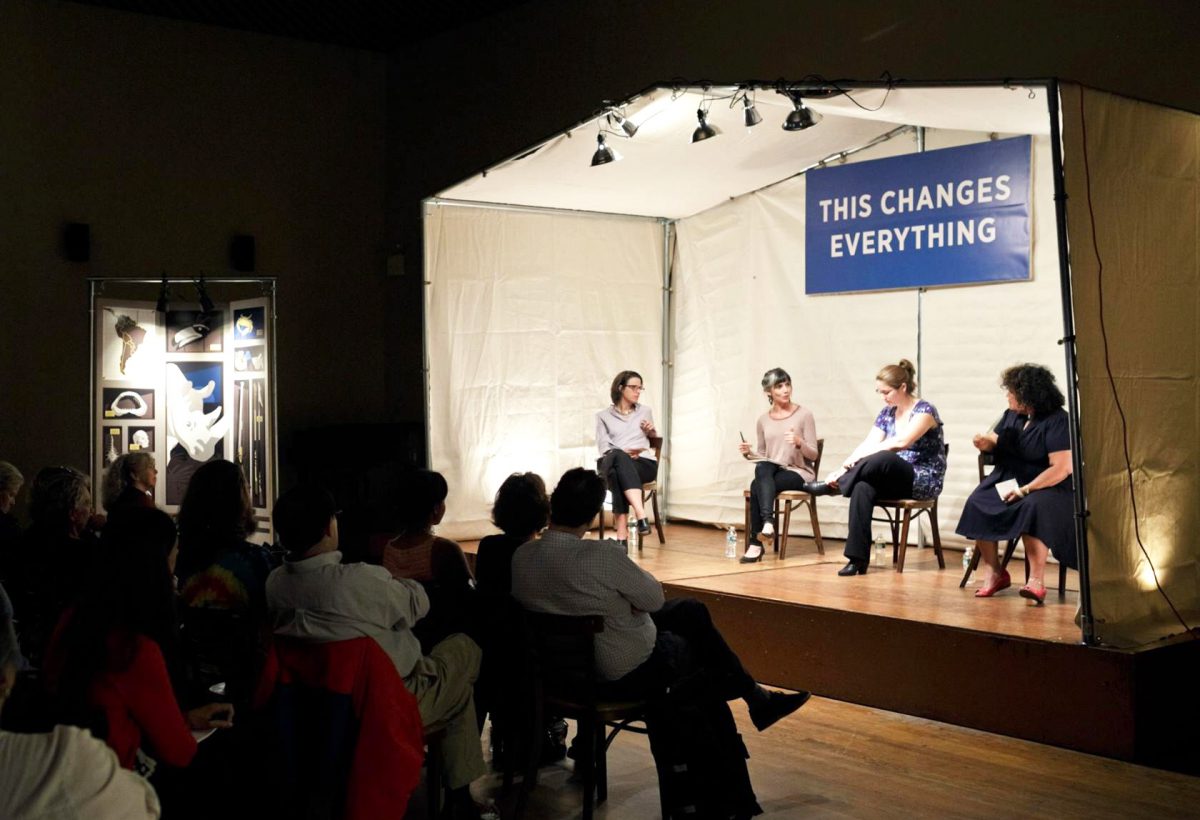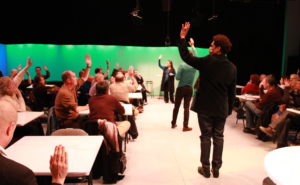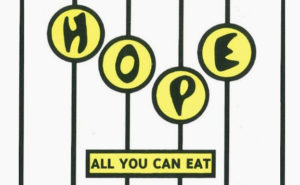
Four dialogues look at the impact of climate change on the body, the community, the country and the planet; and explore some of the innovative ways people are building resilience and sustainability amidst this otherwise doomsday situation. Inspired by Naomi Klein’s international bestseller and featuring an international group of celebrated activists, journalists, policy-makers and artists who are working in radical new ways to make our world last longer.
Featuring
Aurora Levins MoralesBeka Economopolous
Ebony Noelle Golden
Elizabeth Yeampierre
Mallory Catlett
Michael Leon Guerrero
Pablo Solon Romero
Paulina Helm-hernandez
Rachel Falcone
Vijay Prashad
Creative Producer:
Nayantara SenMay 2015 : The Ukrainian National Hall
“The thing about a crisis this big, this all-encompassing, is that it changes everything. It changes what we can do, what we can hope for, what we can demand from ourselves and our leaders.”
– Naomi Klein, This Changes Everything
Dialogue One
Reimagining Our Bodies
How does climate change and environmental trauma affect our bodies?
What do climate change, disability, reproductive, racial and economic justice have in common?
How does the human body build a cooperative relationship to the planet?
Aurora Levins Morales and Ebony Noelle Golden in conversation about these questions. Aurora will share stories about sickness and healing, suffering and pleasure from her new book, Kindling: Writings on the Body, her experience with Sins Invalid, a performance on beauty and disability that redefines what is ‘normal’ or ‘sexy,’ alongside her lifelong activism for racial justice, health and the reclamation of medicinal heritages of Puerto Rican women. Ebony will share learnings from her work with choreographing, staging and producing theatre that centralizes the bodies of women of color.
VIDEOS
Dialogue Two
Reimagining Our Communities
How does climate change and environmental injustice affect our communities?
How do communities respond and adapt to environmental disasters?
How do communities build capacity, resilience and infrastructure to resist climate change?
Stories and experiments from local artists, storytellers, organizers, activists and policymakers in New York, especially those involved in community rebuilding efforts after Hurricane Sandy. Come join a conversation with Elizabeth Yeampierre from UPROSE, Rachel Falcone from Sandy Storyline and Beka Economopolous from Not An Alternative’s Natural History Museum. They’ll be talking about different approaches to building community resilience: through collecting oral histories, supporting Sunset Parks’ indigenous leaders in responding to severe weather events, educating neighbors through toxic tours, and pressuring arts/cultural institutions and museums to sever ties with climate change deniers and acknowledge the real science behind our climate crisis. Moderated by dramaturg and theatre director, Mallory Catlett.
VIDEOS
Dialogue Three
Reimagining Our Countries
How are countries affected by and responsible for climate change?
Are countries the right vehicles – the right organizational forms – for addressing climate change?
What are the limitations and failures of countries (especially our own) in this work?
In this dialogue, scholar, journalist and author Vijay Prashad will chat with Paulina Helm-Hernandez, co-director of the radical movement building organization, Southerners on New Ground (SONG ). Vijay and Paulina will explore the history of countries – and state-sponsored violence – on social and environmental movements. They will examine questions of self-determination as it impacts immigrants, queer and trans communities, and low-income people of color who are most vulnerable to the effects of climate disasters. We will all ask and answer this question together: How should we transform our relationship to our countries in order to make our planet last longer? Moderated by Beka Economopolous, Not an Alternative Arts Collective and The Natural History Museum.
VIDEOS
Dialogue Four
Restoring Our Planet
Our planet is dying. Yet, in all corners of the globe communities are organizing, planting, dreaming, building, connecting and repairing the delicate ecologies of our existence. Bolivia recently passed the Law of Rights of Mother Earth, which secures inalienable human rights for our planet, including rights to life, diversity, water, clean air, equilibrium, restoration, and non-contamination. Is this a good model? Join Trishala Deb from IDEX and Bolivian activist, Pablo Solon Romero from Focus on the Global South to talk about these questions, and explore ways to use organizing, development, the law and movement building to help our planet live longer.
VIDEOS












